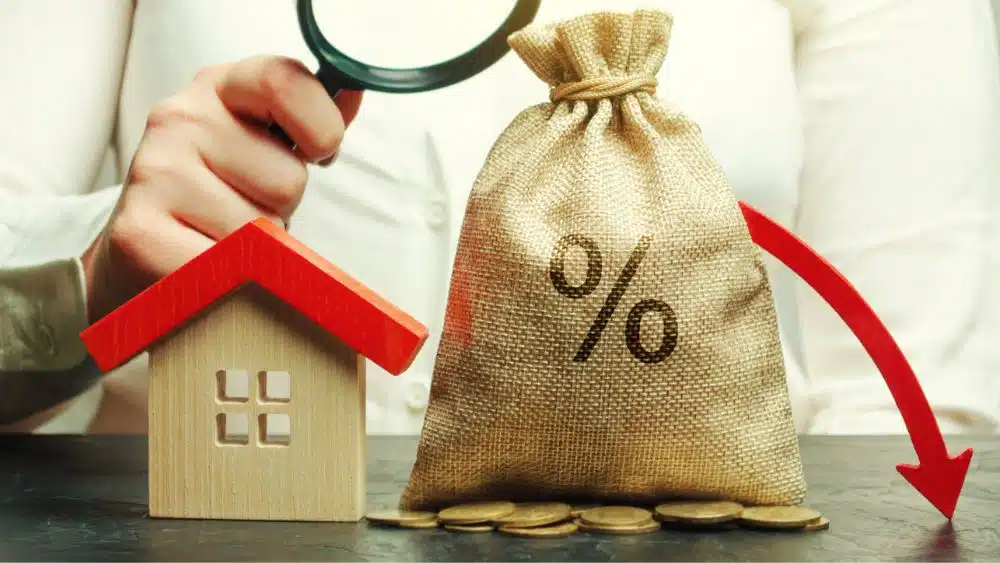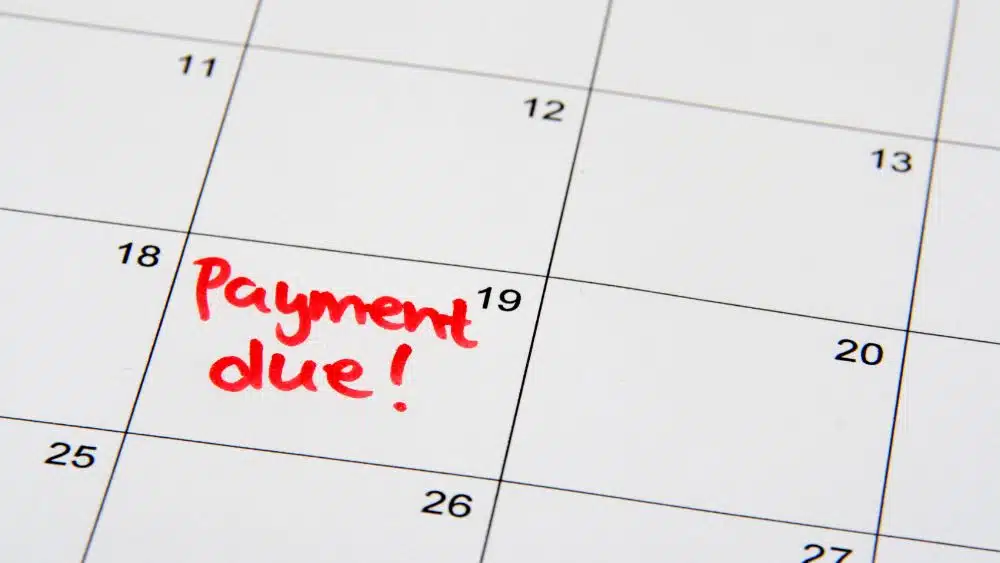
You’ve found the new home of your dreams, but you’ll need a hefty sum to make the purchase — and you’re wondering how you’ll finance it. A jumbo loan may be the answer, — but would you qualify for this larger-than-average mortgage?
A jumbo loan is used to finance homes that cost too much to qualify for conventional home loans. The Federal Housing Finance Agency (FHFA) sets the loan limits for conventional loans, which are the most traditional way to secure a mortgage. For 2023, the loan limit is $726,200.
So if you’ve picked out the perfect McMansion or you’re trying to buy property in one of America’s hottest real estate markets, a jumbo loan could help you get the job done. But is it the right financing option for you?
To help with that decision, here are seven key questions you should ask before applying for a jumbo loan.
Question 1: How much is the property I’d like to purchase?

The key distinguisher between jumbo loans and conventional mortgages is how much financing they offer homebuyers. So first ask yourself how much the property you’d like to purchase costs — and how much financing you’ll need to buy it.
If you’ll need a mortgage for more than the conventional loan limit of $726,200, you’re wading into jumbo loan territory because a conventional loan won’t provide you with enough financing.
Question 2: Where is the property I’d like to purchase located?

There’s a caveat to the FHFA’s loan limit for conventional mortgages, and that’s location. According to the FHFA, if you’re in a “high-cost” area — where local county median home values exceed the baseline limit — the maximum ceiling loan increases to $1,089,300, or 150 percent of the initial limit of $726,200. If you’re buying property in California, New York, New Jersey, Tennessee, Massachusetts, Virginia, or Maryland, check the FHFA’s map of high-cost areas to see if your property is in these regions.
Essentially, if your property is in these high-cost areas, you could snag a conventional loan of up to $1,089,300, instead of applying for a jumbo loan. On the other hand, if the property exceeds the baseline limit and it isn’t in a high-cost area, you’ll default back to needing a jumbo loan.
Alaska, Hawaii, Guam, and the U.S. Virgin Islands follow special statutory provisions whereby conventional loans in these regions outside of the continental United States, are capped at $1,089,300, too.
Question 3: Can I afford jumbo loan mortgage payments?

Before you go any further with the homebuying process, make sure the mortgage payments for a jumbo loan will be manageable alongside your other debts and won’t leave you house poor. No matter what kind of loan you’re shopping for, this is a crucial step all responsible homebuyers need to take, but the stakes are higher if you’re considering a jumbo loan.
Use a mortgage calculator to get an estimate of what your monthly payments would look like. The bigger the loan, the bigger the mortgage payments. You can play around with terms, ranging from five to 30 years. Then work this routine payment into your monthly budget to see how it fits with your other expenses, including recurring bills, transportation, food and entertainment, and health care.
Financial planners suggest that Americans should spend about 25 percent of their monthly budget on housing as a rule of thumb. However, the average married couple spends 31 percent of their budget on housing while single homeowners spend up to 36 percent of their budget on this sole expense, according to the Bureau of Labor Statistics.
This exercise will show you if you’re stretching yourself too thin with a jumbo mortgage. While you may get preapproved for a hefty sum, using this full amount to buy a property isn’t necessarily the wisest thing to do. If these monthly payments will make you house poor, unable to comfortably cover the other expenses in your life, you may need to walk away from this price point and focus on a less costly home.
Question 4: How much do I have for a down payment?

Another deterrent that may stand between you and securing a jumbo loan is your savings to apply toward a down payment.
Conventional loans are backed by Fannie Mae and Freddie Mac, meaning these loans are bought by these entities, alleviating the risk to lenders. Jumbo loans do not fall into this category, meaning your lender is taking the sole risk for financing your home purchase. Because of this, they’re going to make it that much harder for you to qualify for a jumbo loan. They need to know you’re a responsible borrower, who is invested in this home purchase and that starts with your down payment.
While homebuyers shopping for a conventional loan can apply as little as 3 percent down, that won’t cut it with a jumbo loan. You’ll need a down payment of at least 10 percent to get a lender’s attention for a jumbo loan, although some may expect as much as 25 percent. Simply put, if you don’t have the nest egg to apply as a down payment upfront, you may need to keep saving before proceeding with the jumbo loan process.
Question 5: What’s my credit profile?

Before you move any further with shopping for homes that may require jumbo loan financing, take inventory of your credit situation. You don’t want your credit profile to be the factor that stops lenders from approving your jumbo mortgage application. Ask yourself these questions: What is my credit score, have I stayed on top of paying my debts over the past six months to a year, and how much debt am I still carrying?
For a jumbo loan, you’ll need a credit score of at least 700 — in the “excellent” category, compared to the “fair” 620 that’s required for a conventional loan. Then you’ll need a debt-to-income ratio of 36 percent or lower. This means you should attribute only about 36 percent maximum of your gross monthly income toward paying off your existing debts.
If you’re carrying too much credit card debt or a personal loan, these debts could work against you as you apply for a jumbo loan. It’s worth making sure your credit profile is spotless before pitching your case to lenders. They’ll want to know you have a solid history of paying off your debts and the available income to keep doing so.
Question 6: Can you manage a jumbo loan for the long haul?
Medical emergencies, job layoffs, unforeseen home repairs — during the life of your loan, you’re bound to face a few curveballs. Can you navigate your way through tumultuous financial waters with a jumbo mortgage on your plate?
Lenders may expect you to have six months to a year’s mortgage payments and living expenses stashed away in a savings account. For some households, this is a huge financial commitment, especially after saving up 25 percent for a down payment. But it’s a worthy consideration: You and your lender need to know you have the funds to get through tricky financial times.
Can you keep six months to a year’s worth of living expenses untouched in case of emergencies without affecting your day-to-day living? You may learn you don’t have the leeway to come up with this much buffer room.
Also take inventory of your long-term financial plans. Do you plan on growing your family or are you saving a college fund for your little ones? Do you want to start a business or retire early?
Looking at the big picture will help you see if a jumbo loan fits into your plans or if it may become a cumbersome burden, stopping you from your goals in the near and distant future.
Question 7: Is there any other way to secure the financing you need?
Homebuyers can take many routes to securing the financing they need. You may decide to apply a large down payment, enough to lower your financing needs to within FHFA limits, for example.
Another option is to look at government-backed loans, such as Federal Housing Administration loans, Veterans Affairs (VA) loans, and U.S. Department of Agriculture loans.
These government-sponsored loan programs are designed to help qualifying Americans buy, build, or improve a home or refinance a current home loan. They come with massive perks, such as no down payment and lower interest rates. If you fit specific criteria — such as being a military service member or veteran, or meeting low-income household thresholds — you may qualify for these programs. Note that eligible service members and veterans with full VA entitlement don’t have a limit on loans of more than $144,000.
Finally, it may be a matter of looking for homes that fit within your budget instead of stretching your finances to afford a luxury property — and the jumbo loan that comes with it.

Carmen Chai is an award-winning Canadian journalist who has lived and reported from major cities such as Vancouver, Toronto, London and Paris. For NewHomeSource, Carmen covers a variety of topics, including insurance, mortgages, and more.
 Best Small Cities to Retire in New York
Best Small Cities to Retire in New York